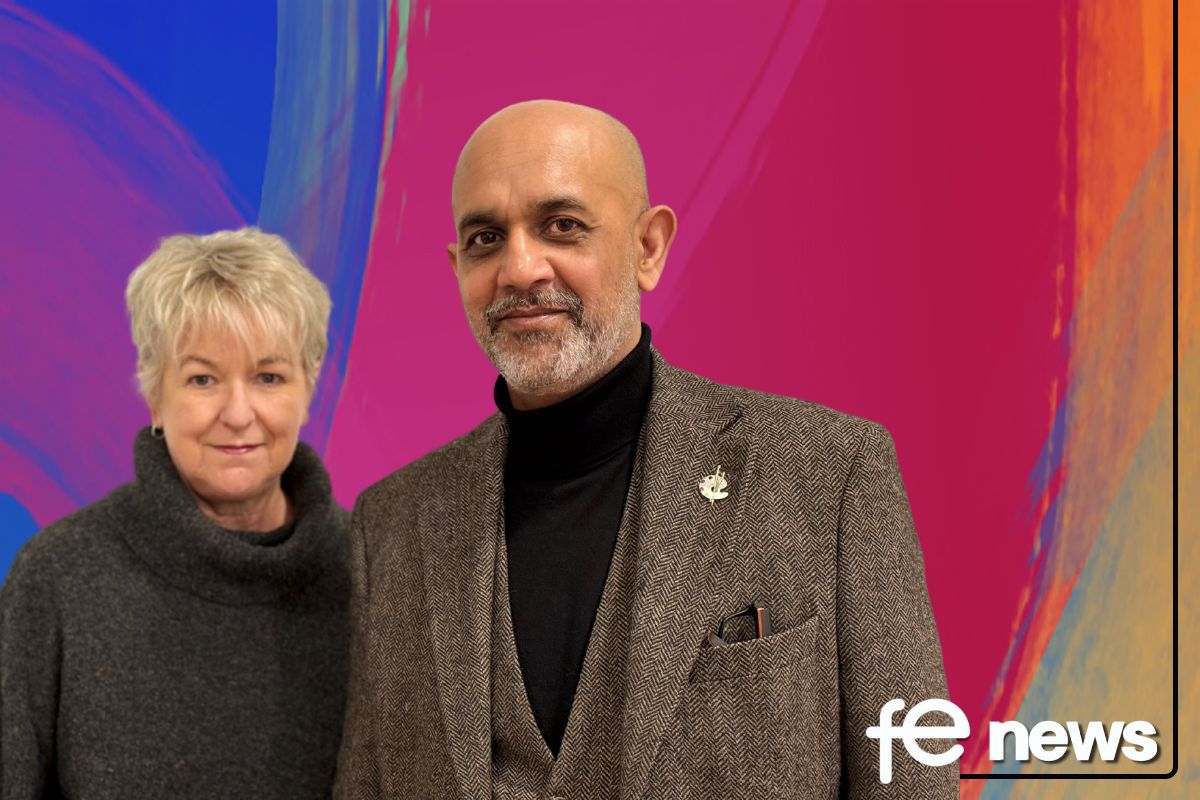EDI policies are under attack. What do we do about it?

From President Trump to some of the world’s largest corporations, a battle is raging around EDI policies and principles. The impact will be felt everywhere, so for those of us who believe in the value and importance of equity, diversity and inclusion, how should we respond?
First, we have to determine the audience. Are we addressing this threat internationally, nationally, locally or within the narrow sector of education? We have to work out for ourselves, on what level we can be effective, rather than wasting energy raging against an unlistening opposition. It will be vital to know what things we can impact and change, and to separate them from the rest of the noise around the issue.
Speeches and statements of intent have their value, but hard evidence will always be more compelling. A powerful business case will always carry more weight than the moral arguments. For example, it’s easy to say, the gender pay gap is a bad thing. It’s rather more persuasive to point out using hard data, as the independent McGregor-Smith review did a whole eight years ago, that eliminating that gap would add a whopping £24 billion pounds to the UK economy – around £30 billion today.
Change is Coming
The Employment Rights Bill currently navigating its way through Parliament will have a significant impact on EDI policies and practice. Gender pay gap reporting for larger companies will now have to be accompanied by action plans, explaining how the business concerned intends to address the problem. Coming down the tracks will be an Equality (Race and Disability) Bill formalising a requirement for ethnicity and disability pay gap reporting. It would be odd if such a move was not also accompanied by a similar requirement for action plans. Companies are going to need support in how to implement both of these, and FE would seem to be ideally placed to formulate and offer such training. At Milton Keynes College we’ve been voluntarily conducting and publishing ethnicity pay gap reviews for the past three years, and the data is very revealing.
A decade ago, it felt as if the desirability of EDI was largely unquestioned by the public at large and particularly, those in authority across the political spectrum. Things are very different now. When it comes to the voices raised against EDI initiatives, we can no longer expect them to be ignored and shouted down, and perhaps that’s actually a good thing. It is so easy in this space to listen to win, rather than listening to learn. If people in our communities or even in our institutions have objections, we need to understand them, rather than simply trying to win a debate. Opposition to EDI often comes from a position of weakness. People expressing it feel themselves disadvantaged. Our explanations of why EDI is a “good thing,” can no longer be about why it’s beneficial for particular sectors of the community, but why it’s of benefit to everyone, including those who are deeply sceptical – and then prove the case with hard data. But, to be able to make that argument and demonstrate its efficacy, we must first understand where their objections lie.
A visit to social media will quickly reveal questions like, why are you talking about women all the time? Why are you talking about race? Why are you constantly talking about trans rights? We might instead talk about more equitable initiatives or policies that benefit everybody.
To come up with change that can be effective and popular, we need to ensure that our organisations’ processes are transparent. We’ve all heard those complaints that so-and-so only got a job because they are black/a woman/have a disability (insert your preferred disadvantaged group here). Such resentment runs deep and feeds into the arguments against EDI as a barrier to progress for others.
For processes to be transparent, there must be support across all areas of an institution and it is the responsibility of those at the top of the organisation to set the tone in clear terms. If an institution believes it would be right to ensure students and staff have access to both gender-specific and gender-neutral toilets, for example, there has to be buy-in at all levels, from marketing to security to curriculum and beyond. If finance don’t understand the value, they’ll say it’s too expensive. If estates management doesn’t get it, they’ll say there’s no space.
Representation
Representation is an area that can no longer be viewed as a matter of simple demographics and needs to be reexamined. The, “you have to see it to be it,” argument still stands, but there is also a deeper question of what does representation really mean. Visible representation is important, but so is the way different perspectives are “represented” within decision-making. Are the voices of those impacted by decisions considered, valued and ultimately influential in how those decisions are made within any institutions or organisation?
An all-female leadership team at a girl’s school might look ideally representative, but if they are all middle-class and from a Christian background, how representative are they of pupils from a blue collar south Asian tradition? Equally, do we have leaders who really understand what it is like to grow up in a white working-class household with no books and a history of unemployment spanning three generations? These are not simple problems to solve, but they must be addressed if we are to prove the worth of our EDI policies.
We mentioned earlier about deciding which was the battle in which we can have the most impact, and that the corporate and international spheres were probably harder to affect. All the headlines have been about one global giant rejecting the principles of EDI while another doubles down and insists it will go even further than before. This distracts from the fact that three out of five UK workers are employed by SMEs, whose policies don’t grab the headlines. As FE colleges we have direct lines into many of these, as well as their membership organisations like the Federation of Small Businesses and the local chambers. Influenced by the big-name companies, there is a risk that many of these will become quiet quitters, letting their EDI policies slide because it’s simply easier to do so in the prevailing climate. We need to keep explaining to those employers the commercial benefits of sticking with it. None of this is actually taking us very far away from the strategy we’ve been employing as a sector for a number of years.
Fairer Futures for All
The AoC’s EDI Charter commits us to, “listening to, and reflecting on our obligations to the communities we serve… and encouraging those with whom we contract to support our commitments.” The point is we need to be thinking about the whole of our communities, getting the message across that John F Kennedy was right when he said, “a rising tide lifts all boats.” The act of persuasion is not around telling people EDI is a “good thing,” but that it is a “good thing for them.”
At Milton Keynes College our rallying cry is, Fairer Futures for All. All must mean All if we are to keep the drive for greater equity, diversity and inclusion alive.
By Sally Alexander, CEO and Principal, and Arv Kaushal, Head of People Development & EDI, Milton Keynes College.











Responses